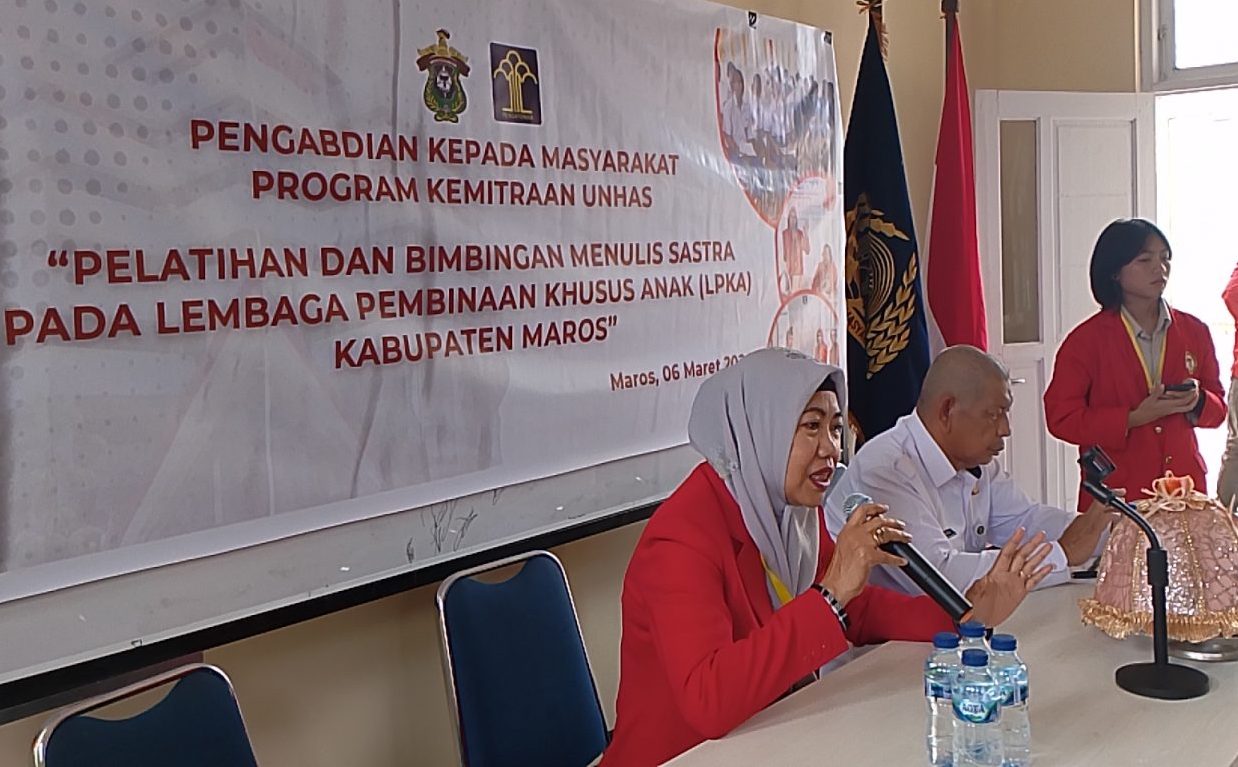Literature Builds Andikpas Character

MAROS — A total of 74 juvenile inmates (Andikpas) at the Special Child Development Institution (LPKA) Maros took part in a Literary Writing Training and Mentorship held on Wednesday, March 6, 2024. The program aimed to foster character development and self-expression through a literary approach.
The training was led by Dr. Inriati Lewa, Lecturer at the Department of Indonesian Literature, Universitas Hasanuddin, accompanied by Syahwan Alfianto Amir. Also present as a guest speaker was Fajar Editor, Ilham Wasi, who provided motivation and writing guidance to the participants.
Mustafa, Head of the Juvenile Inmate Development Division at LPKA Maros, welcomed the initiative. He expressed hope that the training would serve as a valuable resource for the Andikpas during and beyond their rehabilitation period. “We hope the knowledge they gain can be put into practice,” he said.
The training focused on strengthening character through literature. Dr. Inriati Lewa emphasized that literature is not merely an art form, but a reflection of emotion and human values.
“Every literary work is unique and capable of expressing the author’s inner world,” she explained.
In the opening session, participants were introduced to writing strategies that included motivation, skill, and knowledge. Literature was presented as a medium for expression that can broaden perspectives, entertain, and sharpen writing abilities.
The Andikpas were also invited to watch an inspirational film centered on parental love. Following the screening, they wrote reflective stories based on personal experiences and life within the LPKA environment.
Ilham Wasi encouraged participants to explore narratives drawn from meaningful objects around them and life experiences that inspire.
“All of this is expected to become a valuable asset for the Andikpas after their time in rehabilitation,” he said.
LPKA Maros currently houses 74 juvenile inmates with various case backgrounds. The institution is equipped with adequate facilities, including learning spaces, a library, a clinic, and a hygienic kitchen—ensuring a humane and educational rehabilitation process.